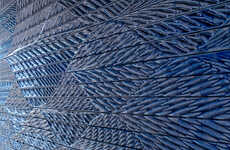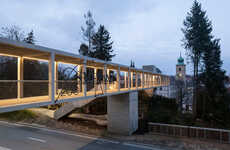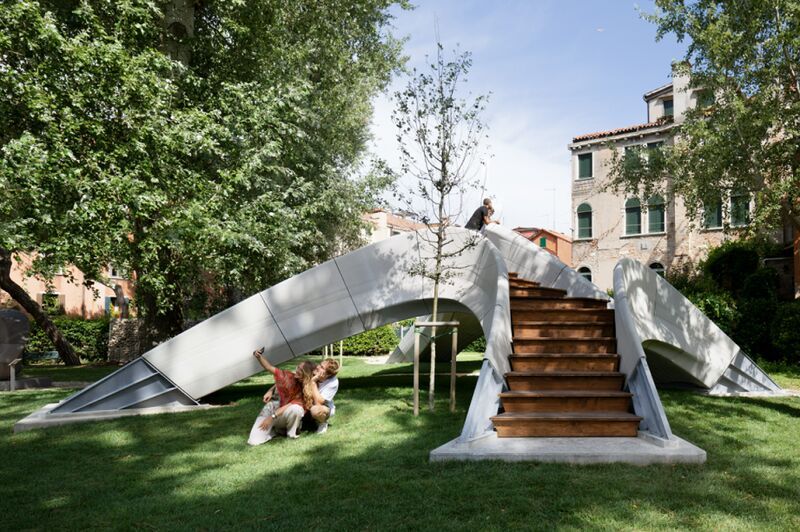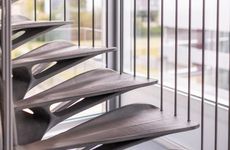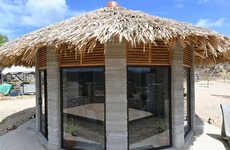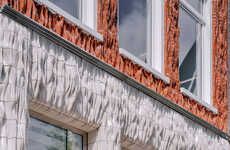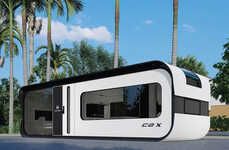
The Striatus is 3D-Printed and Built Without Any Reinforcements
Elena Rahman — July 22, 2021 — Eco
References: striatusbridge & archinect
The Striatus is designed by Zaha Hadid Architects in collaboration with Block Research Group. The partnership unveiled the world's first 3D-printed concrete footbridge build without any reinforcement or mortar. Striatus is currently showcased as the public park Giardini Della Marinaressa for the 2021 Venice Architecture Biennale. The bridge will remain on showcase until November.
A first of its kind, the arched masonry footbridge is made from 3D-printed blocks of concrete. Measuring approximately 40 by 52 feet, the pedestrian bridge combines masonry techniques with advanced computational design. The engineering and robotic manufacturing technologies used for this project made it possible to mount without mortar or additional reinforcements. The structure demonstrates an alternative and ecologically responsible approach to building with concrete.
Image Credit: Zaha Hadid Architects
A first of its kind, the arched masonry footbridge is made from 3D-printed blocks of concrete. Measuring approximately 40 by 52 feet, the pedestrian bridge combines masonry techniques with advanced computational design. The engineering and robotic manufacturing technologies used for this project made it possible to mount without mortar or additional reinforcements. The structure demonstrates an alternative and ecologically responsible approach to building with concrete.
Image Credit: Zaha Hadid Architects
Trend Themes
1. 3d-printed Concrete Structures - The advancement of 3D printing in the construction industry presents opportunities to create unique and sustainable building structures.
2. Robotic Construction Technology - Robotic manufacturing technologies can enhance the efficiency and precision of building processes.
3. Sustainable Architecture - The growing demand for ecologically responsible architectural design can drive innovation towards environmentally friendly materials and building methods.
Industry Implications
1. Construction - The construction industry can benefit from the adoption of 3D printing and robotic manufacturing technologies for faster, more efficient, and sustainable building processes.
2. Architectural Design - Architects can incorporate 3D printing and computational design techniques to create unique and innovative building structures.
3. Materials Science - The exploration and development of new materials that are durable, environmentally friendly, and compatible with 3D printing and robotic construction technologies present opportunities for research and innovation.
3.3
Score
Popularity
Activity
Freshness


